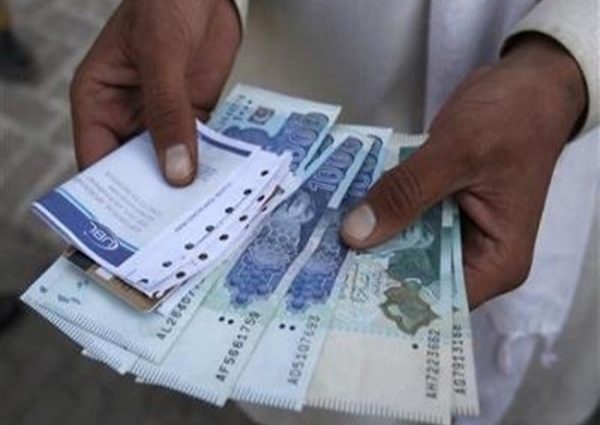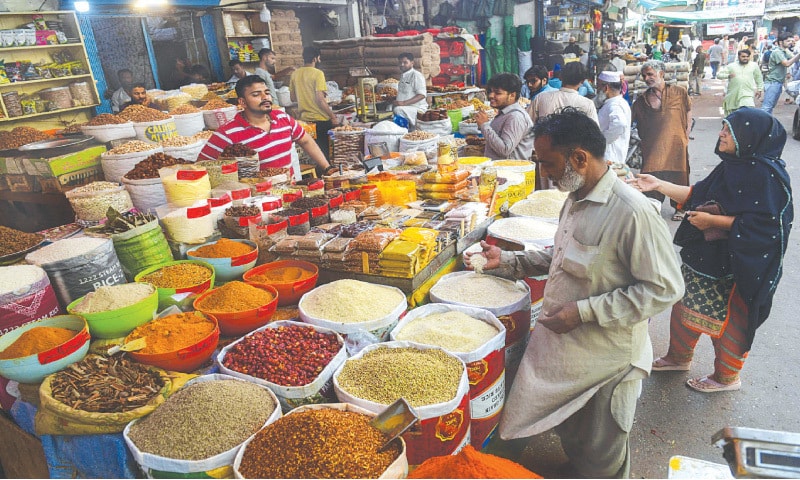The Sensitive Price Index (SPI) was up by 3.73 per cent during the week ending Friday (July 28)
The latest data comes as Pakistan’s central bank will likely raise its key interest rate again on Monday.
The SPI covers 51 items put of which the prices of 20 increased, seven dropped and 24 remained unchanged
ISLAMABAD (Web News )
The Sensitive Price Index (SPI) was up by 3.73 per cent during the week ending Friday (July 28) with the surge in inflation on year-on-year basis stood at 29.21pc, shows the figures released by Pakistan Bureau of Statistics.
The latest data comes as Pakistan’s central bank will likely raise its key interest rate again on Monday to tackle persistently high inflation, giving in to pressure from the International Monetary Fund (IMF).
The move is expected despite the fact that the business community has been critical of the rate hike trend, citing paralysed economic activity which means no expansion or growth in businesses and thus no new job opportunities for the people who have been crushed by unprecedented inflation.
Hence, reduced purchasing power means the domestic demand has shrunk amid a significant decline in exports due to high cost of production making the produce expensive in world markets where too the people are feeling the heat because of high inflation.
According to the PBS data, it is the low-income groups which are facing the worst of inflation with those spending up to Rs17,732 or falling in the range of Rs17,733-22,888, Rs22,889-29,517 and Rs29,518-44,175, the SPI increased by 28.92pc, 26.65pc, 31.71pc and 32.74pc respectively on year-on-year basis. It was 30.31pc for those over Rs44,175.
The SPI covers 51 items put of which the prices of 20 increased, seven dropped and 24 remained unchanged compared to the previous week.
When compared with the last week, the biggest hike was recorded in the prices of powdered chillies (28.98pc), tomatoes (19.71pc), eggs (4.77pc), LPG (4.12pc), garlic (3.09pc), onion (2.58pc), gur (2.18pc) and potatoes (2.09pc).
Meanwhile, the items whose prices increased the most over the same week a year ago were: wheat flour (132.36pc), cigarettes (110.75pc), gas charges for Q1 (108.38pc), tea Lipton (97.71pc), rice basmati broken (79.60pc), rice Irri-6/9 (73.23pc), sugar (63.72pc), potatoes (62.65pc), tomatoes (60.50pc), gents sponge chappal (58.05pc), gur (57.57pc), powdered chillies (55pc) and chicken (54.52pc).
It is the record-high and persistent inflation that have even marred the Eid celebrations for many as witnessed this year on the occasion of Eidul Azha.
limited budget due to reduced purchasing power was a problem for the majority who don’t want to miss their religious duty. Thus, “window shopping” remained a visible practice at the cattle markets with many customers arguing their case unsuccessfully with the sellers.
But the inflation-hit households will now have to adjust their monthly budget for accommodate more expenses, as the Oil and Gas Regulatory Authority (Ogra) hiked the tariff for the Sui Northern Gas by 50 per cent and the Sui Southern Gas by 42pc on average.
Similarly, the Nepra (National Electric Power Regulatory Authority) earlier this week issued its reserved verdict on the federal government’s request for an increase in electricity prices, in which it endorsed the move and fixed new tariffs for different categories of consumers.


